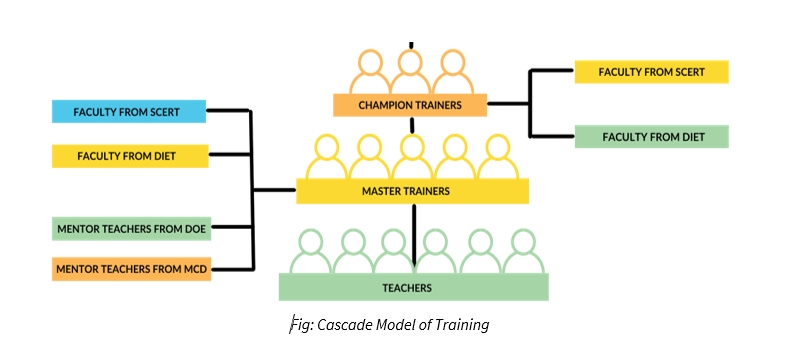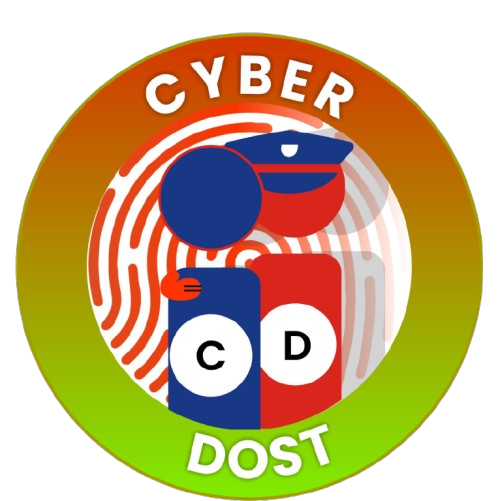SCERT Delhi | INSET CELL
The state of Delhi has close to 3,000 government schools serving over 25 lac children. The government body responsible for the training and professional development of these public educators is the State Council for Education Research and Training (SCERT), supported by district level agencies called District Institute of Education and Training (DIET). All other bodies responsible for schooling such as Directorate of Education (DOE) and Municipal Corporation Delhi (MCD) work with the SCERT and DIET to support their teachers. Given the multitude of public bodies, government school teachers have few shared training experiences leading to significant variation in learning outcomes across Government schools.
In 2021 SCERT set out to transform the structure of in-service teacher training by recognizing the need for a rigorous training program for all teachers across Government schools in Delhi. The intent behind this transformation is to elevate the quality of training while designing content that marks a shift from content to competency based training, setting a benchmark for high-quality teaching-learning practices.
Context
While there have been in-service teacher trainings in the past, only one-third of teachers reported that the training they received was beneficial (Sankar et al, 2014). The scope of teacher training was narrow and focused more on content training, which often became restricting and did not focus on addressing teachers’ needs. Moreover, the standard cascade model of in-service training follows a top-down movement of information from two or more levels of trainers to the teachers and has reported significant transmission loss (Kidwai et al, 2013) resulting in little sustainable learning for teachers. Additionally, learning failed to translate into actionable classroom practices since facilitation has little focus on meaningful understanding and practical application of training content.
Through INSET CELL we aim to address these issues and enable teachers to leapfrog into a new level of teaching and learning that would ensure their students receive the highest quality of learning
Implementation
To ensure every teacher gains access to the Multi-Support approach, a Cascade Model will be implemented with each support component running simultaneously after being introduced in a phased manner. The Cascade model is a preferred model for teacher professional development as it reaches a large number of teachers while being time and cost-effective. To address the transmission loss reported in this model, the program has added layers of facilitation support, masterclass sessions and observation and feedback cycles for the 25 Champion Trainers & 435 Master Trainers, the core delivery agents of the program to 80,000 teachers. In doing so, the model builds capacity in trainers from all government institutions responsible for Delhi’s education system. This helps ensure:
- Sustainability of such in-service training programs.
- Agility to adapt training modules to reflect the ever changing contextual needs of teachers and realities of classrooms.

Implementation Process
Competency-Based Workshops
Each module has a two-month training cycle that begins with a design phase and shifts into building capacity within Champion trainers Masters trainers to deliver training for 80,000 teachers. This module delivery cycle will continue on an ongoing cycle for a period of 3 years.
.jpg)
Over the 5 day training of Champion & Master Trainers, the trainers receive 2 Masterclass Sessions and 1 rehearsal with access to module plans and feedback cycles. This ensures, the trainers meaningfully embody the quality of content and skills intended from the training modules. Post capacity development of trainers, the 6 week cycle of Teacher Training begins for the 80,000 teachers across Delhi. During this period, each teacher receives two competency based workshops per module.
Monitoring and Evaluation
| Mechanism | Details | Frequency |
| Attendance Recording | Participation and completion rates in online and offline training will be recorded. | Per Training Session |
| Observation Cycle and Feedback (Champion & Master Trainers) |
Session Quality Delivery Evaluation of competency based workshops by Champion & Master Trainers will be monitored by INSET team | Per Module |
| Pre & Post Learning Surveys | Learning outcomes of Champion Trainers, Master Trainers & Teachers to monitor training usefulness, viability and knowledge transfer. | Per Training Session |


 State Council of Educational Research and Training (SCERT)
State Council of Educational Research and Training (SCERT) 


